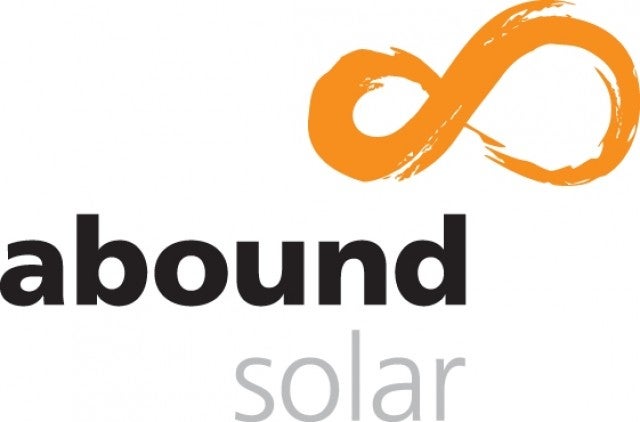The Wrong Technology: Evidence of Faulty Panels Continues to Mount at Abound Solar
Michael Sandoval /
Claims that Chinese solar subsidies killed Abound Solar—and not faulty solar panels made by the company itself—are beginning to wear as thin as the solar panels they produced.
A Denver news channel’s documents characterized the company’s solar panels as “low performance” and suffering from “catastrophic failures.” A Daily Caller report found the panels “would routinely burn up” and suffered from chronic underperformance, leading to the replacement of “tens of thousands of panels.”
Now, with the bankrupt solar manufacturer and former DOE loan guarantee recipient under investigation, Abound’s apparent inability to produce a quality product led to a “spectacular and ongoing collapse” that is still unfolding:
Funded in part by the city of Fort Collins and CSU, the 2-year-old Innosphere is a place for Northern Colorado’s best and brightest to collaborate and create, particularly in the fields of biotechnology and alternative energy. The building was designed as a showcase for that work, and the dozens of solar panels above the parking lot help drive the point home.
But while the television in the lobby at 320 E. Vine Drive will tell you how much power the panels are generating today, it won’t tell you that the entire installation had to be ripped out and replaced after only a year. Why? Because the panels manufactured only 35 miles away by homegrown Abound Solar stopped working properly.
Court records and federal filings show that faulty panels just like those installed at the Innosphere played a significant role in Abound’s spectacular and ongoing collapse that’s left thousands of creditors and hundreds of employees wondering what happened and American taxpayers out $70 million.
Jim Welch, a solar panel installer based in Colorado, told the Fort Collins Coloradoan that Abound Solar’s product had “unrealistic expectations” with “a lot of risk.” Ultimately, Welch said, it was “the wrong technology.”
As an unpaid consultant, Welch expressed concerns to Abound executives about the problems of trying to bring a potentially underdeveloped technology to commercial scaling prematurely.
The problems with Abound’s panels include manufacturing and installation, as a new report from the Boulder County Business Report reveals.
Multiple companies recognized early on that Abound’s products were faulty or malfunctioning, including the same Innosphere replacements seen earlier:
The Rocky Mountain Innosphere, among others, had Abound Solar’s panels installed on the awning and roofs of its covered parking but needed them replaced after they started cracking, said Ryan Daniel, the Fort Collins technology incubator’s building manager.
“It was a flaw in design that’s not due to anything other than the way that they were designed,” Daniel said.
Namasté Solar only ordered panels twice for installation projects due to the “negative experience” it had with Abound, instead relying on more “established companies.” Namasté’s installation of solar panels at the Denver Museum of Nature and Science featured prominently in the 2009 signing of the American Recovery and Reinvestment Act by President Barack Obama.
Another solar installer in northern Colorado refused to use Abound panels in his installations.
Charlie Bacorn told BCBR that using “the latest and greatest everything” also resulted in what he described as “a lot of failure.” He now waits for five years to see how the solar products hold up to installation and wear-and-tear.
“Anything less than that and all you are is R&D for the manufacturer,” Bacorn said.
The Coloradoan report details how within months of receiving the $400 million loan guarantee from DOE, the company had also already begun to recognize, at least internally, that it was not able to make “reliable panels” like the ones described by the various installers.
The “underperforming product” made Abound unable to achieve “revenue targets because they were spending so much money replacing faulty panels, according to the paper:
While no one questions that Abound’s technology worked well in the lab, the memos sent by company officials to federal overseers make it clear that manufacturing problems were costing the company both time and money. The memos were first obtained by the Northern Colorado Business Report.
Those internal reports and memos have not deterred DOE officials, company executives, or Colorado State University research and development staff (Abound spun out of CSU in 2007) from continuing to blame “intense competition” from China or arguing the company “was a victim of the economic circumstances we were going through.”
In fact, CSU’s vice president for research, Bill Farland, maintains that the technology developed at CSU and used by Abound “continues to be very strong and very good” and hopes another company will try to pick up where the bankrupt solar company left off.

